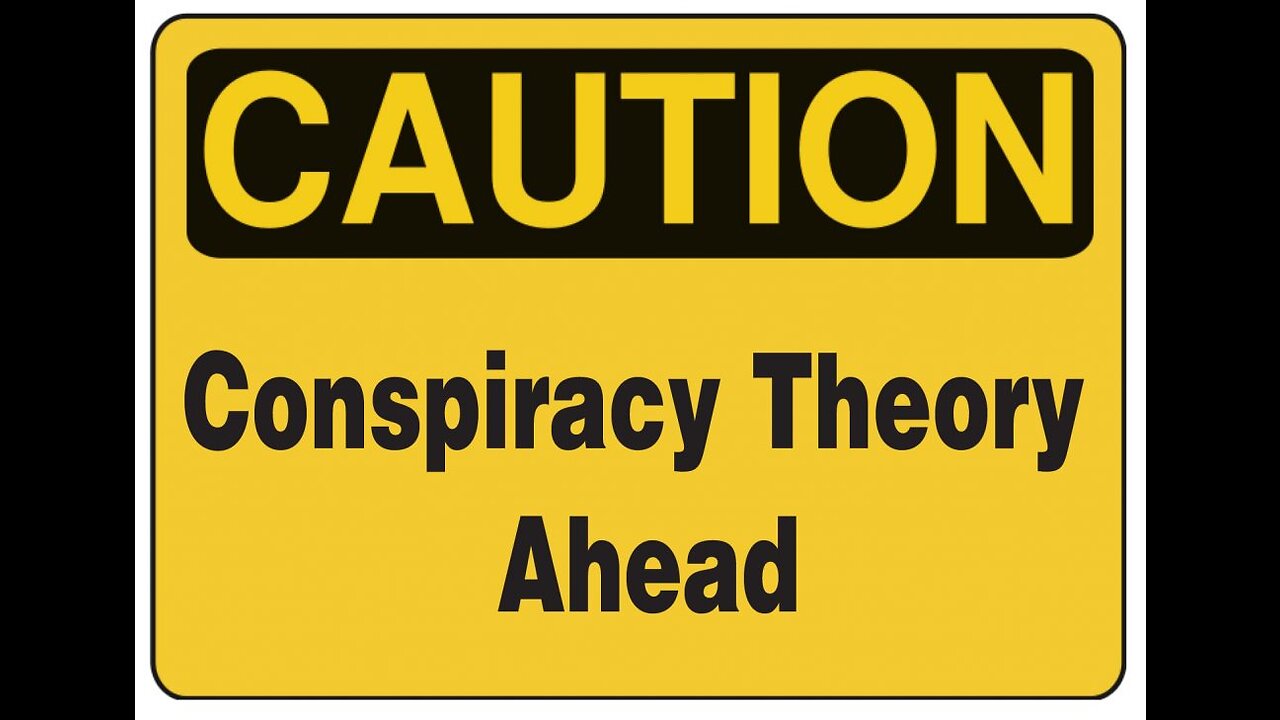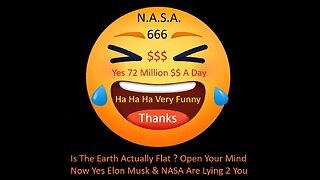Premium Only Content

Conspiracy Theories That Turned Out to Be True U.S.A. Government Lie's Again W0W
The truth is stranger than fiction. For this list, we’ll be going over the strangest and most famous conspiracy theories that were actually conspiracy facts. Our countdown includes Roswell Cover-Up, The FBI Spied on Political Activists, Watergate Scandal, and more! Is there a theory you once believed that you now realize was a load of baloney? Tell us in the comments!
Perhaps one of the most shocking conspiracy theories that turned out to be true was a CIA program called MKUltra, which had the stated goal of developing biological and chemical weapons capability during the Cold War.
In 1963 the government I pay taxes to killed my president. In 2001, they terrorized my land and passed the Patriot Act to spy on me. In 2020 they released a virus on me then tried to force me to take a deadly vaxx. They print money constantly to steal my dollar. It's not democracy, it's dictatorship?
The term “conspiracy theory” refers to a theory or explanation that features a conspiracy among a group of agents as a central ingredient. Popular examples are the theory that the first moon landing was a hoax staged by NASA, or the theory that the 9/11 attacks on the World Trade Center were not (exclusively) conducted by al-Qaeda, but that the US government conspired to let these attacks succeed. Conspiracy theories have long been an element of popular culture; and cultural theorists, sociologists and psychologists have had things to say about conspiracy theories and the people who believe in them. This article focuses on the philosophy of conspiracy theories, that is, on what philosophers have had to say about conspiracy theories. Conspiracy theories meet philosophy when it comes to questions concerning epistemology, science, society and ethics.
After giving a brief history of philosophical thinking about conspiracy theories in section 1, this article considers in more detail the definition of the term “conspiracy theory” in section 2. As it turns out, the definition of the term has received a lot of attention in philosophy, mainly because the common usage of the term has negative connotations (as in, “It’s just a conspiracy theory!”), raising the question whether our definition should reflect these. As there is a great variety of conspiracy theories on offer, section 3 considers ways of classifying conspiracy theories into distinct types. Such a classification may be useful when it comes to identifying possible problems with a conspiracy theory.
The main part of this article, section 4, is devoted to the question when one should believe in a conspiracy theory. In general, the philosophical literature has been more positive about conspiracy theories than other fields, being careful not to dismiss such theories too easily. Hence, it becomes important to come up with criteria that one may use to evaluate a given conspiracy theory. Section 4 provides such a list of criteria, distilled from the philosophical literature.
Turning from questions about belief to questions about society, ethics and politics, section 5 addresses the societal effects of conspiracy theories that philosophers have identified, also asking to what extent these are positive or negative. Given these effects, the last question this article addresses, in section 6, is what, if anything, we should do about conspiracy theories. Answering this question does not, of course, depend on philosophical thinking alone. For this reason, section 7 briefly mentions some relevant work outside of philosophy.
-
 10:48
10:48
What If Everything You Were Taught Was A Lie?
1 day agoIs The Earth Actually Flat ? Open Your Mind Now ! Yes Elon Musk & NASA Are Lying To You
2.99K10 -
 1:30:23
1:30:23
Twins Pod
15 hours agoHe Went From MARCHING With BLM To Shaking Hands With TRUMP! | Twins Pod - Episode 45 - Amir Odom
130K30 -
 1:02:30
1:02:30
Exploring With Nug
16 hours ago $3.70 earned2 Duck Hunters Missing After Kayak Capsizes!
58K4 -
 46:48
46:48
Mally_Mouse
10 hours agoLet's Hang!! -- Opening Christmas gifts from YOU!
67.8K1 -
 44:55
44:55
Athlete & Artist Show
20 days ago $2.04 earnedNHL 4 Nations Snubs, Was Hawk Tuah Coin A Scam?
65.7K -
 33:47
33:47
Stephen Gardner
15 hours ago🔥Pentagon Whistleblower UNLEASHES on Biden and Obama!
121K245 -
 2:20:30
2:20:30
The Dilley Show
17 hours ago $28.22 earnedRoger Stone in Studio plus Q&A Friday! w/Author Brenden Dilley 12/27/2024
99.4K22 -
 1:57:02
1:57:02
The Charlie Kirk Show
15 hours agoThe Great H-1B Battle + AMA | Lomez | 12.27.24
186K296 -
 11:39
11:39
Russell Brand
1 day agoWhat You're Not Being Told About The Syrian War
182K289 -
 DVR
DVR
Bannons War Room
1 year agoWarRoom Live
101M